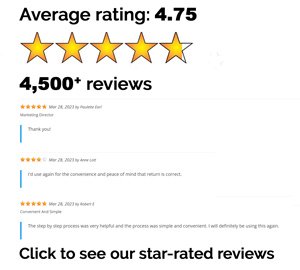There are some fees you see coming from a mile away. For instance, if you pay your taxes late or use an ATM that’s out of your network. However, not all companies are upfront about their pricing. Sometimes we don’t realize there’s a fee attached to the things we’re buying until we see the final price. According to Consumer Reports, at least 85 percent of Americans have faced an unexpected or hidden fee in the last two years. Here are some hidden fees that can blindside you.
Foreign transaction fees
Think twice about using your credit card abroad. In most cases you’ll be charged a foreign transaction fee which is usually around 3% of your purchase. This consists of a 1% fee from the payment processor and another 2% from the card issuer. An easy way to avoid the expense is to use cash or apply for a credit card that doesn’t charge foreign transaction fees. A few that fit the bill are Capital One’s VentureOne Rewards credit card, Bank of America’s Travel Rewards credit card and Chase’s Sapphire Preferred card.
Resort fees
The next time you book a hotel pay special attention to the fine print. Some hotels charge resort fees to cover amenities such as Wi-Fi, gym access, pool use and the in-room safe. The fee is usually unadvertised and added on to your nightly room rate. In 2018, the average resort fee was $27 per day.
Balance transfer fees
When researching tips for getting out of debt quickly it’s not uncommon for balance transfers to be recommended. Experts love it because you can save money by transferring your credit card balance to a card with a lower interest rate. What you may not realize is that there’s a fee attached. The balance transfer fee is normally 3%-5% of the transferred amount. However, you can avoid the expense by applying for the right credit card. Chase Slate, the Amex EveryDay card and the SunTrust Prime Rewards credit card are a few that don’t charge balance transfer fees.
Departure tax
Nobody goes on vacation expecting not to spend any money. Most travelers set aside cash for food, transportation, excursions and souvenirs. However, there’s one hidden fee that can catch you off guard if you don’t do your research beforehand. Depending on the destination, you may be charged a departure tax. While some countries include the fee in your ticket price, others expect you to have your cash payment ready at the airport.
Paper statement fees
Still receiving paper statements in the mail? If so, you’re wasting money. Many banks now charge a fee of $2-$3 per monthly statement. The best way to avoid the expense is to sign up for electronic statements. If you want a hard copy you can always print it yourself at home.
Award redemption fees
Some credit cards offer reward points or miles which can later be redeemed for gift cards, hotels or flights. It sounds like a sweet deal, but you may be left with a sour taste in your mouth when you’re hit with a award redemption fee. This usually occurs when trying to redeem airline miles over the phone or at a ticketing counter. A few airlines also charge a close-in booking fee if you book your ticket within 21 days of departure.
Excess activity fee
Excess activity is when you have too many withdrawals, transfers and payments from your savings account. Federal regulation states that you can only have 6 transfers and certain types of withdrawals per statement cycle. If you go over the limit, you’ll be charged a fee for each transaction.




